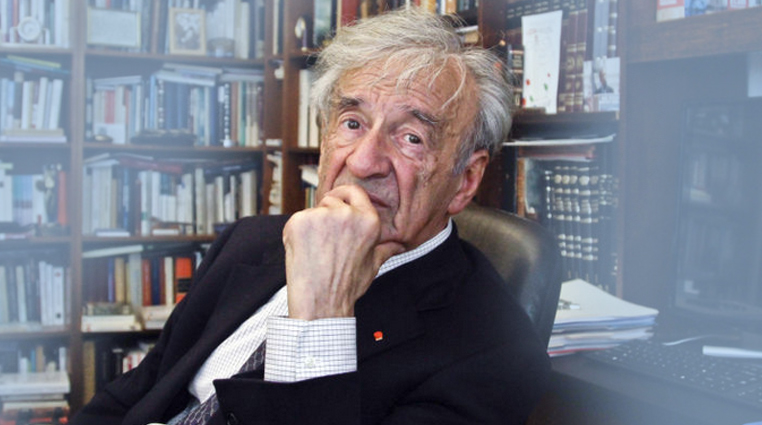Nobel laureate Elie Wiesel, the Romanian-born Holocaust survivor whose classic “Night” became a landmark testament to the Nazis’ crimes and launched Wiesel’s long career as one of the world’s foremost witnesses and humanitarians, has died at age 87.
Elie Wiesel was born in 1928 in Sighet, Transylvania, which is now part of Romania. He was fifteen years old when he and his family were deported by the Nazis to Auschwitz.
Tattooed with the number A-7713, he was freed in 1945 — but only after his mother, father and one sister had all died in Nazi camps. Two other sisters survived.
One of the world’s foremost witnesses and humanitarians, Wiesel for more than a half-century voiced his passionate beliefs to world leaders, celebrities and general audiences in the name of victims of violence and oppression. He wrote more than 40 books, but his most influential by far was “Night,” a classic ranked with Anne Frank’s diary as standard reading about the Holocaust.
“I remember: it happened yesterday, or eternities ago. A young Jewish boy discovered the Kingdom of Night. I remember his bewilderment, I remember his anguish. It all happened so fast. The ghetto. The deportation. The sealed cattle car. The fiery altar upon which the history of our people and the future of mankind were meant to be sacrificed.
I remember he asked his father: “Can this be true? This is the twentieth century, not the Middle Ages. Who would allow such crimes to be committed? How could the world remain silent?”
And now the boy is turning to me. “Tell me,” he asks, “what have you done with my future, what have you done with your life?” And I tell him that I have tried. That I have tried to keep memory alive, that I have tried to fight those who would forget. Because if we forget, we are guilty, we are accomplices.
And then I explain to him how naïve we were, that the world did know and remained silent. And that is why I swore never to be silent whenever wherever human beings endure suffering and humiliation. We must take sides. Neutrality helps the oppressor, never the victim. Silence encourages the tormentor, never the tormented. Sometimes we must interfere. When human lives are endangered, when human dignity is in jeopardy, national borders and sensitivities become irrelevant. Wherever men and women are persecuted because of their race, religion, or political views, that place must – at that moment – become the center of the universe.” – Fragment from the Nobel Acceptance Speech delivered by Elie Wiesel in Oslo on December 10, 1986*
Despite Wiesel’s mission to remind the world of past mistakes, the greatest disappointment of his life was that “nothing changed,” he said in an interview.
“Human nature remained what it was. Society remained what it was. Too much indifference in the world, to the Other, his pain, and anguish, and hope.”
Read the complete Elie Wiesel’s Nobel Acceptance Speech here.

